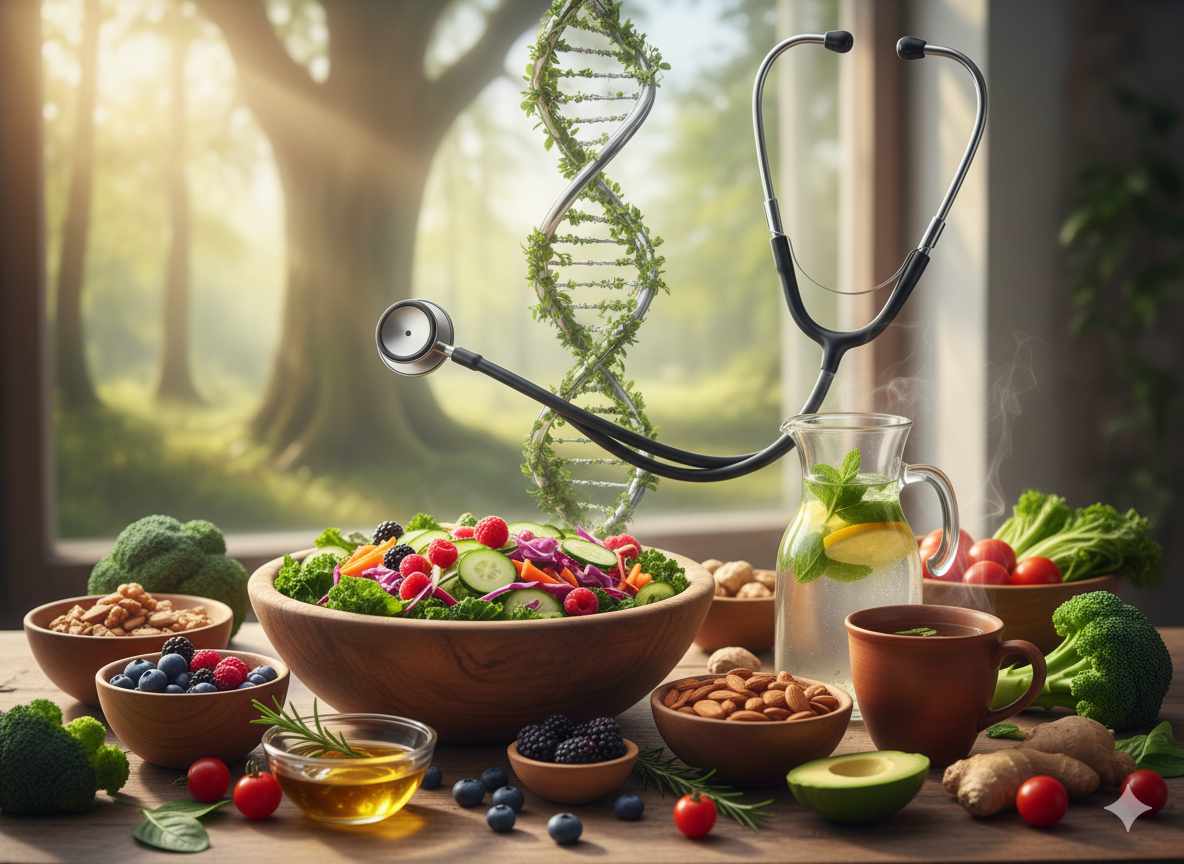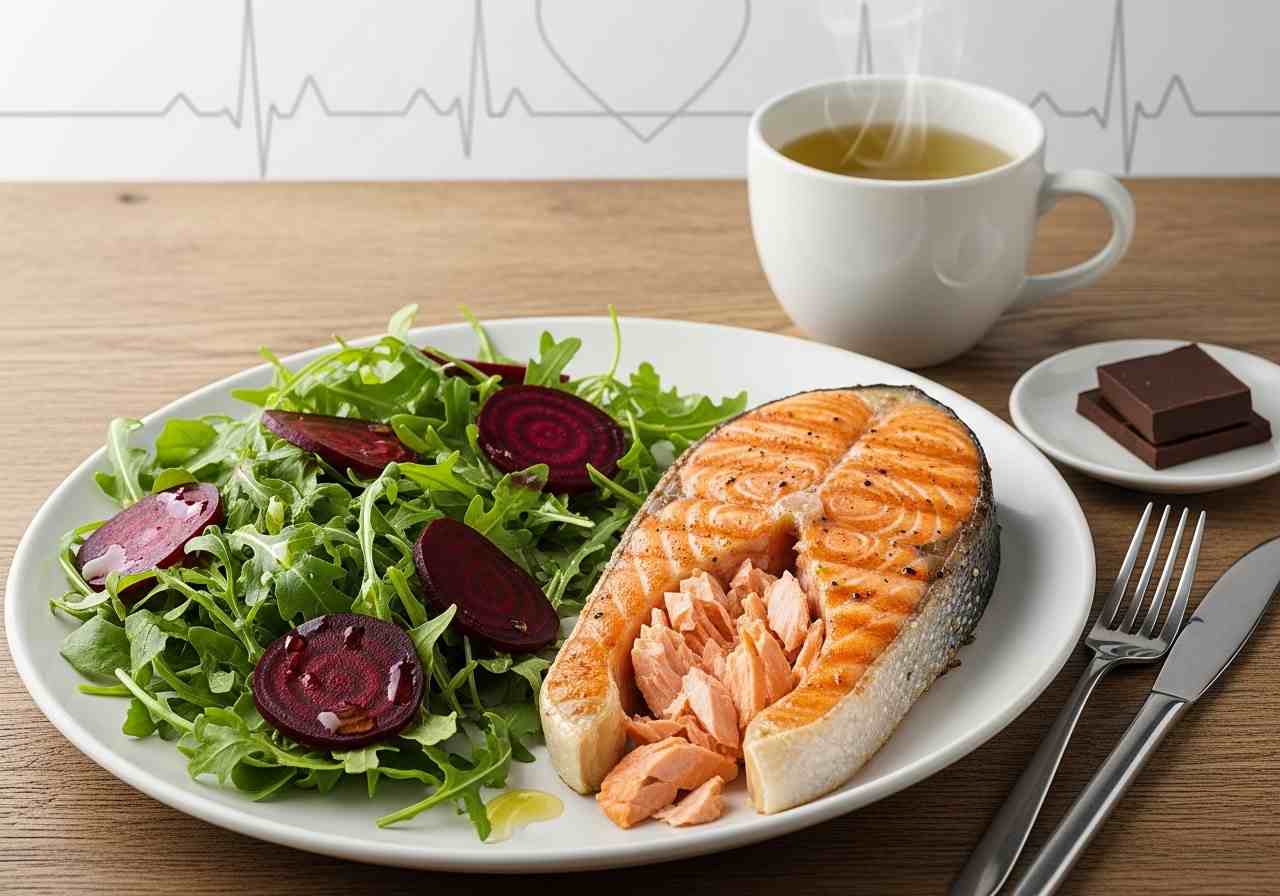Fueling the Fight: The Best Diets and Nutrition Strategies for Cancer Management

It would be such a disappointment to hear your doctor telling you that your cancer battle is not dependent on diet. You can eat anything you like. That advice feels off, right? The fact is, to nourish cancer, to nourish cancer, you need to feed them. This post deconstructs the smart nutrition strategies and aims at the weak points of cancer. Always consult the doctor before attempting any of these ideas. This is supported by studies, such as those into cell behaviour and requirements.
Introduction: Challenging Conventional Wisdom on Cancer Nutrition
Physicians normally tell us that diet does not matter when you have cancer. They may advise you to eat what you feel good eating. But that’s not the full story. A lot can be made of what you put on your plate. It is able to supply cancer cells or sever their supply lines.
Think about it this way. The cancerous cells are uninvited guests. They seize the fuel that is available to them so that they can continue. Take that away, and starve them. This is not of quick solutions or wonderworking. It means that you can use food as a weapon.
However, we are aware that the cancer statistics have not changed much even after billions of dollars have been allocated in studying it. Death rates remain the same as many decades ago. Then why not have a look at how nutrition can fit in? Evidence based practices are discussed in this guide. Visit the links to studies to get additional evidence. It should be remembered that this info is meant to empower you. Combine with medical recommendations to achieve the most.
Biology of Cancer: Weak Links and Plasticity
Cancer isn’t simple. It transforms and opposes treatments. In order to beat it, you should be aware of its tricks. Now, we will examine the way cells become corrupted and how they work. Such information can be used to create striking diets.
Heterogeneity of Cancer: The Unity is in the Mind
Cancer is everything at the same time. The term heterogeneous is of Greek origin of different kinds. It is manifested in different genes and shapes.
There is no one plan and it suits all situations. Breast cancer in itself is sub-typed. One may diffuse fast in thy lungs, another in thy stay. That is the reason why personalized approaches are important.
Physicians prescribe according to type yet nutrition can be adjusted as well. And disregard this amalgamation, and you lose chances to strike back.
Cellular Vulnerabilities and Oxygen Therapy
Normal cells form the beginning of cancer. The mitochondria, the power plants of the cell is damaged. Cells go into a reserve state, however, it is wobbly. They’re always on the brink.
Increase oxygen levels in order to make them nervous. It is flooded through hyperbaric chambers. The same is done through exercise that pumps more air in. This forms reactive oxygen species or ROS that destroy cancer cells more than healthy cells.
Cancer favours places of low oxygen. It disseminates to inflamed regions with little air. Use oxygen to push back. Even the simple walks or deep breathing can be counted as steps.
Vitamin D blockade and Immune System Evasion
Cancer conceals itself to the defenses of the body. However, these bad guys are hunted by immune cells which are avoided by tumors. Chemo not only destroys cancer, it attacks immune fighters.
Build up your defenses. Vitamin D is vital in this. Additionally, it assists the immune cells in identifying and in attacking threats. D receptors are blocked by cancer cells to have a better survival chance.
Go to greater levels of vitamin D. Test your blood and adjust. Sun exposure helps too. It is this not so complicated thing that fortifies your inner army.
Determining the Accusatory Starvation Motives of Cancer
The growth of cancer cells requires energy. They seize fuels such as proteins or glucose. What yours has a use in, you may cut it off. This is what anti-cancer diets are all about.
The Much More Preeminent Fuels: Glucose and Glutamine
Moreover, glucose and glutamine run most of the rapidly growing cancers. Glucose is sugar from carbs. Glutamine is a protein amino-acid.
Look at examples. Examples Glioblastoma, colorectal, breast, lung and head and neck and cervical cancers are glucose cravings. They set it ablaze in order to multiply.
Still them with omitting sugars. This slows their spread. Glutamine nourishes most, particularly hard tumors.
Alternative Fuel Pathways: Lipids and Branch Chain Amino Acids (BCAAs)
Others use lipids, also known as fats, as a source of power. These are done by hormone-directed ones such as some forms of prostate.
There are those who take BCAAs, which are present in meats and dairy. These branched amino acids construct tumor walls.
Adaptation is key. Here is but one in cutting, here is but one in shifting, cancer. That’s why you rotate plans. No single diet wins alone.
The Ketone Controversy of Advanced Cancers
Breakdown of fat results in ketones. The majority believe that low-carb keto diets are good to combat cancer. However, ketones can also be used with late-stage ones.
They construct membranes out of them. Aggressive cancers seize nothing to survive. This is observed in the advanced breast or pancreatic cases of research.
Don’t ditch keto entirely. It starves glucose-lovers. Therefore, people should only pay attention to changes in difficult battles. There are several strategies that keep cancer in the dark.
The Multi-Strategy Approach: Diet Rotation and Intermittent Fasting
One diet won’t cut it. Cancer adapts fast. Turn things around on what you eat. Clean house inside, and add fasting. These steps are aimed at fuels as they heal you.
Rotational Diet Therapy in order to avoid adaptation
Block different fuels by using cycle diets. Begin with anti-glucose 10-14 days in case glucose is a type food. That is predominantly keto, which is low in carbs.
Replace with anti-glutamine during 4-5 days. Pay attention to vegetables, avoid foods with high amounts of protein. This strikes glutamine-dependent cells.
In the case of melanoma, anti-glucose 5-7 days followed by anti-glutamine 7-10 days. Repeat the loop. Tumors can’t catch up. Free booklets on food lists and schedules.
Diets Tailored to Particular Fuel Dependencies
Lipids are frequently used in prostate cancer. After two to three days of anti-glucose, switch to low-fat anti-lipid. Keep omega-3s but avoid most fats. They combat inflammation without promoting tumor growth.
BCAAs are impacted by liver cancer. Anti-glucose for 5–7 days, followed by plant-heavy anti-BCAA for 7–10 days. Fruits and vegetables predominate here. The meats are gone.
Adapt to the findings of your scan. Fuel types are revealed by genetic testing. To cover everything, rotate.
Applying Periodic Fasting to Cellular Repair
Consume one or two meals each day. Disperse them. While your body is at rest, this stops cancer from growing.
Autophagy is triggered by fasting. Junk parts are recycled by cells. Bad ones starve; healthy ones heal.
Do it every day. Any rotation can use it. Cancer is hit, but your energy remains high.
Advanced Techniques for Late-Stage and Aggressive Cancers
Take charge when cancer spreads or fights fiercely. Make use of more powerful instruments. Long-term fasts and adjustments cause disruptions. These expand on the fundamentals for greater effect.
Extended Fasting as an Effective Intervention
Resources are depleted during extended fasts. Tumors shrank in some stage four patients who fasted for a month. It overwhelms the survival strategies of cancer.
Fasting produces different ketones. Unlike diet ones, body-made ones do not promote cancer. Stay hydrated and take it easy.
Begin slowly. Build up to days without eating. Keep an eye on things with your physician. It’s difficult but successful.
Support for a Healthy Lifestyle and Strategic Supplementation
Fuels are blocked by supplements. Use ones that inhibit the uptake of glucose or glutamine. In late cases, others target ketones.
Aim for 90–100 ng/mL of vitamin D. You are guided by the sun and tests. It promotes cell health and immunity.
Oxygen is delivered by exercise. Cancer is stressed by walks or light weights. Do it frequently to increase mitochondria.
Unpredictability through Unusual Fasting
Avoid following a schedule when fasting. Cancer adjusts to trends. Change it up.
One week, try a 48-hour fast. Wait 72 hours after two weeks. After a brief break, proceed five days later.
Every few weeks, do this once or twice. Tumors are kept off balance by it. Monitor your emotions.
Conclusion: Taking Charge by Acting With Knowledge
A full-court press is necessary for cancer. To starve fuels such as glucose, glutamine, lipids, BCAAs, and even ketones, switch up your diet. For healing and resetting, incorporate both extended and sporadic fasting. In addition, to support your body, take smart supplements, exercise, and increase your vitamin D intake.
This is preferable to mindlessly eating anything. Knowledge gives you power. For precise meal plans and rotations, get the free download. Present it to your physician. Examine the studies that are linked here. Today is your day to take charge; your battle is worthy.



